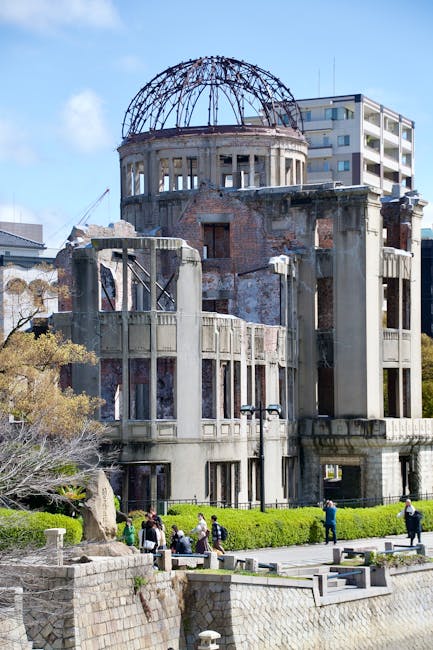Malaysia Post-COVID: Navigating the New Normal, Changes and Future Expectations

Malaysia Post-COVID: Navigating the New Normal, Changes and Future Expectations
Hey there, friend! Remember those carefree days before 2020? It feels like a lifetime ago, doesn't it? Here in Malaysia, life has definitely taken some unexpected turns since the COVID-19 pandemic hit. We've all had to adapt, learn new ways of doing things, and really appreciate what we have. Things aren't quite the same, but honestly, some of the changes have been for the better. Let's dive into what Malaysia looks like post-COVID, what's changed, and what we can expect moving forward. Grab a cup of teh tarik (or your favorite beverage!), and let's chat.
The Economic Landscape: Recovery and Resilience

Okay, let's be honest, the pandemic hit our economy hard. Tourism, a major pillar, practically vanished overnight. Many businesses, especially smaller ones, struggled to stay afloat. I remember seeing so many of my favorite local restaurants closing down, which was heartbreaking. But, Malaysians are a resilient bunch! We've seen a gradual economic recovery, fueled by a combination of factors.
Firstly, the government implemented various economic stimulus packages to support businesses and individuals. These measures provided much-needed relief and helped keep the economy from completely collapsing. Think of it like a life raft in a stormy sea. Secondly, the reopening of borders, although initially cautious, gave a huge boost to the tourism industry. Seeing tourists return to our beautiful beaches and bustling cities was a welcome sight! Finally, a shift towards digitalization and e-commerce created new opportunities for businesses to reach customers online.
While we're on the road to recovery, there are still challenges. Inflation is a concern globally, and Malaysia is no exception. Rising prices of goods and services can put a strain on household budgets. Supply chain disruptions, a lingering effect of the pandemic, also contribute to economic uncertainty. Despite these hurdles, the Malaysian economy is showing signs of resilience, and with continued effort and strategic planning, we can expect further growth in the coming years.
The Workplace Revolution: Remote Work and Digital Transformation

One of the biggest shifts I've personally experienced is in the way we work. Remember the daily commute, the office politics, and the rigid 9-to-5 schedule? Well, for many of us, those days are partially gone, or at least significantly altered. The pandemic forced companies to embrace remote work, and surprisingly, it worked! I know so many people, myself included, who are now working from home (or cafes!), at least part of the time.
This shift has several benefits. Firstly, it offers greater flexibility and work-life balance. Being able to spend more time with family, avoid the stressful commute, and work at your own pace can significantly improve your well-being. Secondly, it can save money on transportation, food, and other expenses associated with working in an office. And thirdly, it allows companies to tap into a wider talent pool, as they're no longer limited by geographical location.
Of course, remote work also comes with its challenges. It can be difficult to stay motivated and productive when working from home, especially with distractions. Maintaining clear boundaries between work and personal life is crucial. And some roles simply cannot be performed remotely. However, the pandemic has accelerated the adoption of digital technologies, and many companies are investing in tools and infrastructure to support remote work. This digital transformation is not just a temporary trend; it's a fundamental shift in the way we do business. Expect to see more companies offering hybrid work models, combining the benefits of remote work with the social interaction and collaboration that comes from being in the office.
Education: Blended Learning and Adapting to the Future

The education sector also underwent a major transformation during the pandemic. Schools were forced to close, and students had to transition to online learning. This was a huge challenge for both teachers and students, especially those who lacked access to reliable internet or technology. But, like everything else, we adapted. Teachers learned new ways to engage students online, and students became more tech-savvy.
Post-COVID, we're seeing a move towards blended learning, which combines online and in-person instruction. This approach offers several advantages. It allows students to learn at their own pace, access a wider range of resources, and develop valuable digital skills. It also provides flexibility for students who may have health concerns or other reasons for not being able to attend school in person. However, it's important to ensure that all students have equal access to technology and support, regardless of their socioeconomic background.
Looking ahead, the education system needs to focus on developing skills that are relevant to the future workforce. This includes critical thinking, problem-solving, creativity, and collaboration. We also need to prepare students for the challenges and opportunities of the digital age, such as cybersecurity, data analytics, and artificial intelligence. Education is key to ensuring that Malaysia remains competitive in the global economy.
Healthcare: Strengthening Public Health Infrastructure

The pandemic exposed some vulnerabilities in our healthcare system. We saw hospitals overwhelmed, healthcare workers stretched to their limits, and challenges in procuring and distributing vaccines. However, it also highlighted the dedication and resilience of our healthcare professionals, who worked tirelessly to save lives.
Post-COVID, there's a renewed focus on strengthening our public health infrastructure. This includes:
- Investing in better equipment and facilities for hospitals and clinics.
- Training more healthcare workers and improving their working conditions.
- Strengthening our surveillance and response systems for infectious diseases.
- Promoting public health education and awareness.
Telemedicine is also becoming increasingly popular, allowing patients to consult with doctors remotely. This is especially beneficial for people who live in rural areas or have mobility issues. The pandemic has also highlighted the importance of mental health. Many people experienced anxiety, depression, and stress during the lockdowns and restrictions. We need to ensure that mental health services are readily available and accessible to everyone who needs them.
Tourism: Rebuilding and Reinventing

As I mentioned earlier, tourism was one of the sectors most heavily affected by the pandemic. With borders closed and travel restrictions in place, the industry came to a standstill. However, with the reopening of borders, we're seeing a gradual recovery. But, tourism needs to be more than just a return to the old ways. We need to reinvent the industry and make it more sustainable and resilient.
This includes:
- Promoting eco-tourism and responsible travel practices.
- Diversifying our tourism offerings beyond traditional attractions.
- Investing in digital marketing and online platforms to reach new markets.
- Supporting local communities and businesses that rely on tourism.
I've noticed a growing interest in domestic tourism, with Malaysians exploring their own country more than ever before. This is a great opportunity to showcase the beauty and diversity of Malaysia to our own people. We also need to attract high-value tourists who are willing to spend more and contribute to the local economy. By focusing on sustainability, innovation, and quality, we can rebuild the tourism industry and make it even better than before.
Social Changes: Increased Awareness and Community Spirit

Beyond the economic and practical changes, I've also noticed some significant social shifts. The pandemic brought us together in unexpected ways. We saw communities rallying to support each other, providing food and assistance to those in need. There was a greater sense of empathy and compassion, as we all faced the same challenges.
The pandemic also raised awareness of social inequalities. We saw how vulnerable certain groups were, such as migrant workers, refugees, and the homeless. This has led to a greater focus on social justice and a call for more equitable policies. I believe the pandemic has made us more aware of our interconnectedness and the importance of looking out for each other. It's important that we maintain this sense of community spirit and continue to support those who are less fortunate.
The use of technology has also become more ingrained in our daily lives. We're more comfortable with online shopping, digital payments, and video conferencing. This has opened up new opportunities for communication, collaboration, and access to information. However, it's also important to be mindful of the digital divide and ensure that everyone has access to the benefits of technology.
Looking Ahead: Navigating the Future with Hope and Resilience

So, what can we expect moving forward? The post-COVID world is still evolving, and there are many uncertainties. But, I believe that Malaysia is well-positioned to navigate the future with hope and resilience. We have a strong economy, a diverse culture, and a resilient people. We've learned valuable lessons from the pandemic, and we're adapting to the new normal.
We need to continue to invest in education, healthcare, and infrastructure. We need to promote innovation, entrepreneurship, and sustainable development. And we need to foster a culture of inclusivity, tolerance, and respect. By working together, we can build a brighter future for Malaysia, one that is more prosperous, equitable, and resilient. Remember, even after the toughest storms, the sun always rises again. And in Malaysia, we definitely know how to find the sunshine, even when it's hiding behind the clouds.
Ultimately, the changes we've experienced in Malaysia post-COVID have been profound. From the workplace revolution to the strengthening of our healthcare infrastructure, the pandemic has accelerated existing trends and forced us to re-evaluate our priorities. While challenges remain, the resilience and adaptability of Malaysians give me hope for a brighter future. Let's continue to support each other, embrace innovation, and build a Malaysia that is stronger and more resilient than ever before.
Post a Comment for "Malaysia Post-COVID: Navigating the New Normal, Changes and Future Expectations"
Post a Comment